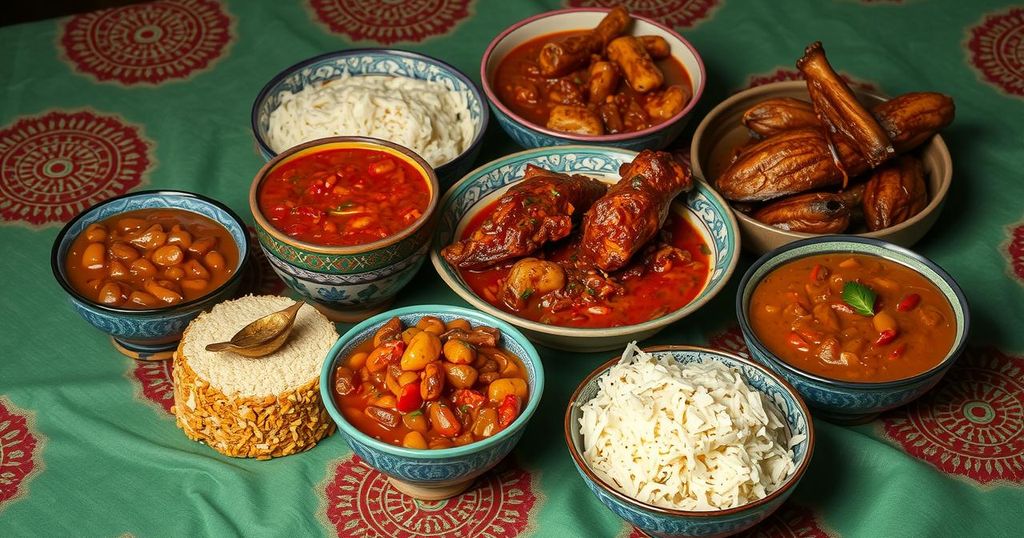Six Nigerian Foods Prohibited from Entry into the UK and Their Reasons

Travelers from Nigeria should be aware of UK import restrictions on certain foods to avoid confiscation and penalties. Prohibited items include meats, dairy, unprocessed shellfish, ungutted fish, fresh fruits and vegetables, and raw nuts due to health and safety regulations. Checking the latest regulations and airline guidelines is advisable.
Traveling from Nigeria to the United Kingdom can be an exciting journey; however, it is crucial to be aware of the food items that are restricted or prohibited at the border. The UK has stringent import regulations in place to protect public health, preserve local agriculture, and prevent the spread of pests and diseases. Consequently, certain Nigerian food items are not permitted to enter the country.
Understanding these regulations can assist travelers in avoiding the confiscation of their food items, potential fines, and delays at customs. Regulations may change, thus it is advisable to review the latest UK import regulations before traveling. Travelers should also confirm guidelines with airlines and travel operators regarding food items.
Below are six Nigerian foods prohibited from being brought into the UK and the rationale behind these restrictions:
1. Meat and Meat Products: Any form of meat, including raw, cooked, dried, or processed varieties, is completely prohibited. This encompasses beef, chicken, goat meat, suya, kilishi, sausages, and meat-based dishes like nkwobi. These measures aim to mitigate the risks of animal disease outbreaks.
2. Milk and Dairy Products: All milk and dairy products, such as cheese, butter, and yogurt, are banned. The only exception is powdered infant milk or special medical food in unopened branded packaging that does not require refrigeration. These restrictions are in place to prevent harmful bacteria from entering the UK.
3. Unprocessed Shellfish and Snails: Travelers cannot bring raw mussels, oysters, or live snails into the UK. If you wish to travel with snails, they must be shelled, cooked, and preserved to ensure food safety and prevent the introduction of invasive species.
4. Ungutted Fresh Fish: Up to 20kg of fish is allowed entry per person, but fresh fish must be gutted before travel. Processed fish such as dried, cooked, cured, or smoked varieties are permissible, provided they are commercially packaged. Whole, unprocessed fish are not allowed in the UK.
5. Fresh Fruits and Vegetables: Most fresh fruits and vegetables cannot be taken into the UK unless they are accompanied by a phytosanitary certificate, attesting that they are free from pests and diseases. Restricted items include fruits like watermelon and berries, as well as leafy vegetables such as ugu, bitter leaves, and scent leaves unless properly certified.
6. Raw Nuts and Seeds: Most unpeeled, unpackaged, and unprocessed nuts and seeds cannot be imported into the UK without the appropriate phytosanitary certificate. This includes raw groundnuts, cashews, almonds, and melon seeds, due to the potential risk of carrying pests.
In conclusion, it is imperative for travelers from Nigeria to be aware of the foods prohibited from entering the UK. Items such as meats, dairy products, unprocessed shellfish, ungutted fish, fresh fruits, and raw nuts are restricted due to health and safety concerns. By adhering to these guidelines and verifying regulations before travel, individuals can prevent issues at customs and ensure a smooth journey.
Original Source: businessday.ng








